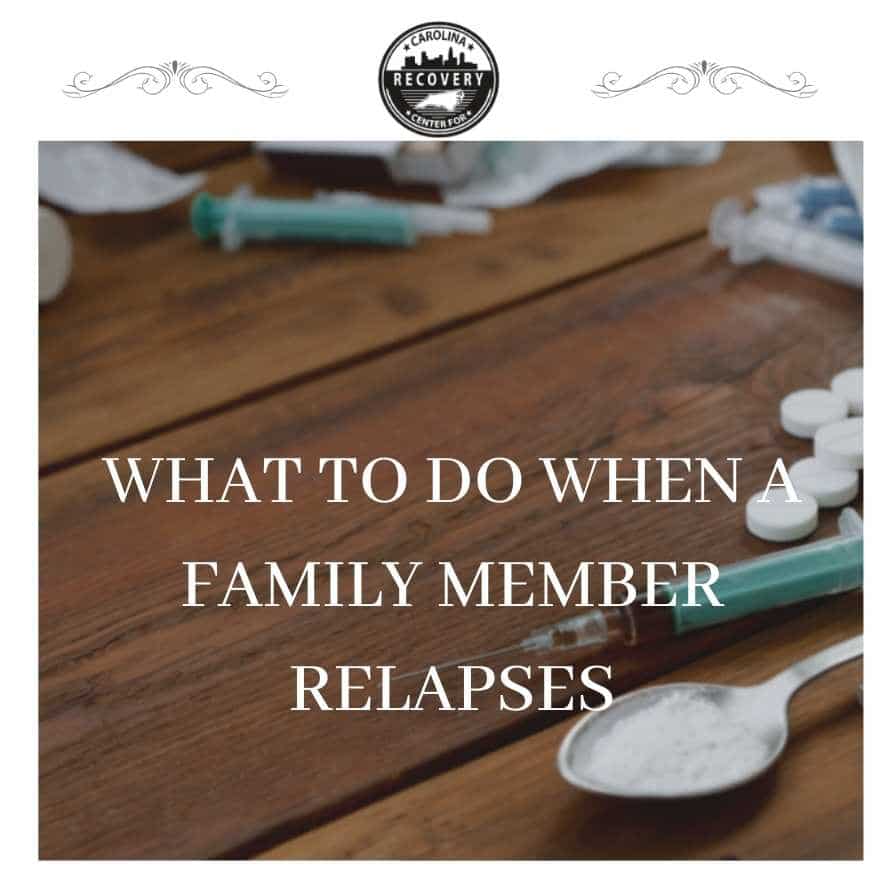What to Do When a Family Member Relapses

Medically Verified: 2/1/24
Medical Reviewer
Chief Editor

All of the information on this page has been reviewed and verified by a certified addiction professional.
Watching your loved one struggle with the disease of addiction is often difficult and heartbreaking. When your family member successfully completes addiction treatment, they learn the important techniques needed to manage the symptoms of their condition. However, it isn’t uncommon for individuals to suffer from one or more relapses within their lifetime. Whether it’s your friend or a family member, learning about a loved one’s relapse is devastating for both the addicted person and yourself. It’s important to remember that while your family member should be accountable for their mishaps in recovery, addiction is chronic in nature – creating a significant barrier to lifelong sobriety.
Every single chronic disease is characterized by a potential for relapse. For example, both hypertension and addiction are chronic diseases that cause many people to relapse. Unfortunately, when it comes to addiction, relapse is very common with an astounding 40-60% of recovering addicts suffering from a relapse.[1] While this statistic is unsettling, it may provide insight into your family member’s relapse.
When a family member relapses, the aftermath is often full of a variety of uncomfortable feelings. It’s important to remember that your family member’s relapse is not a sign of failure, rather a sign of needing extra help and support. Additionally, there are constructive ways to handle a setback such as this. Let’s take a look at what you should do when a family member relapses.
Practice Self-Care
It’s important to remember to continue practicing self-care, even while your family member is suffering from a relapse. After all, it’s difficult to help someone else when you have not helped yourself. It may be distressing to watch your loved one struggle or feel disappointed that they strayed from their sobriety after countless counseling sessions and treatment programs. While these feelings are completely normal responses, you must manage them properly before attempting to help your family member.
Self-care may include therapeutic activities, such as going for a run, meditating, and attending a support group. This may even include attending family addiction therapy with your loved one. Additionally, you should make efforts to strengthen your physical and mental health during this time. As a result, you will be able to become more patient, rational, and understanding of your loved one.
Keep Communication Open
While a relapse episode is discouraging for all parties involved, remember that it will be especially difficult for your addicted family member. Typically, they are their own worst critic, often struggling with feelings of regret, frustration, and hopelessness. Because of this, they will need a support system to help them get back on track and recover from their relapse. Friends and family should reinforce that their loved one’s efforts were not in vain while encouraging them to keep trying.
Brainstorm and Encourage Treatment Options
When your loved one suffers a relapse, they must seek professional addiction treatment. Because relapse is just part of one’s recovery process, your family member’s relapse should be taken as a sign of them requiring more treatment. Whether they receive treatment through an inpatient or outpatient program, they must do so as soon as possible. However, you should never force treatment onto an individual, especially if they are not ready. Addiction treatment should be a willing activity, as it works best when the patient agrees to participate.
If your loved one is unwilling to accept treatment, you can attempt to host a drug and alcohol intervention. Interventions are meetings put together by a professional alongside the friends and family of an addict. During interventions, the friends and loved ones of the addicted individual will read statements in an attempt to emotionally appeal to the individual, with the end goal being treatment.
Engage in Sober Activities
Continue to stay mindful of your loved one’s triggers and try spending time together at places where alcohol and other substances are not present. This could include seeing a play or a movie or having a picnic in a park. Also, being in nature tends to boost people’s moods, and any safe activity that takes the focus off of substance use will benefit someone who is struggling to stay sober.
Enjoying lighthearted activities together also helps to heal any tensions in your relationship with your family members. With that being said, if your loved one is struggling with sobriety, it’s important to reinforce some sort of normalcy by engaging in fun, substance-free activities together.
Suggest Attending Support Groups
Programs like SMART Recovery and 12 Step groups will help your loved one to gain the support they need, learn new information about recovery, and realize they are not alone.[2] They will most likely find friends and sober supports within these groups who have relapsed, allowing them to learn and gain insight from other people’s experiences. You might even consider attending a Nar-Anon or Al-Anon meeting for family members and friends of people coping with addiction or alcoholism. These support groups allow you to find your own sense of comfort and community with others who are facing similar challenges.
Find Treatment for Your Family Member’s Relapse
If your family member has recently suffered a relapse, it may be time for them to return to addiction treatment. At Carolina Recovery Center, we provide our patients with the highest level of addiction education possible, allowing them to fully understand their triggers and cravings for substances. Also, we understand the importance of relapse prevention planning, as relapse is a common, yet avoidable occurrence in recovery. Contact us today for more information on addiction treatment and relapse prevention planning.
References:

